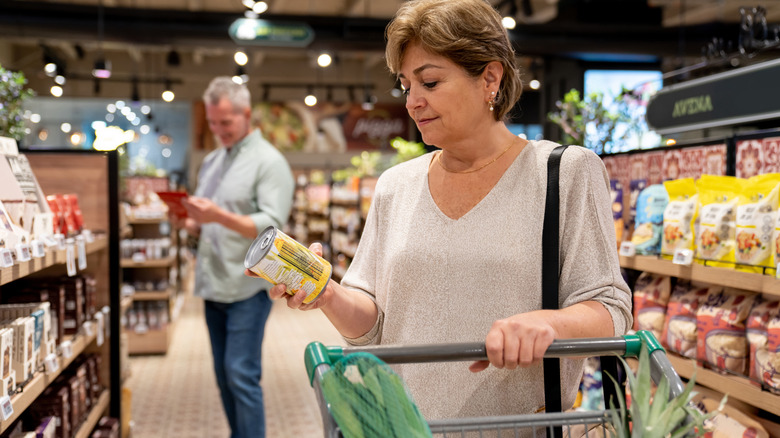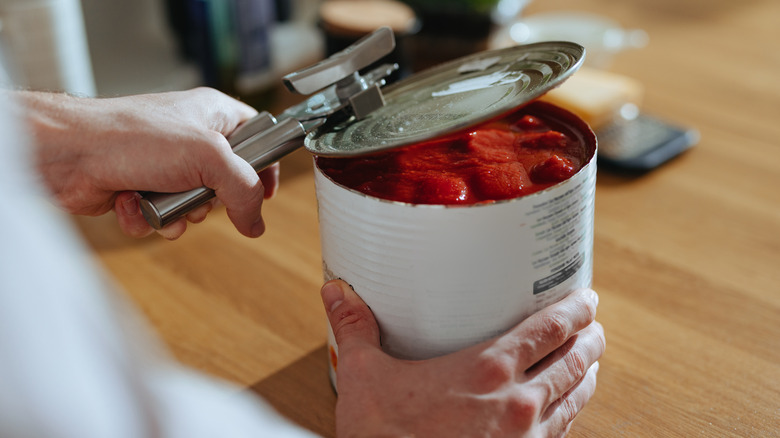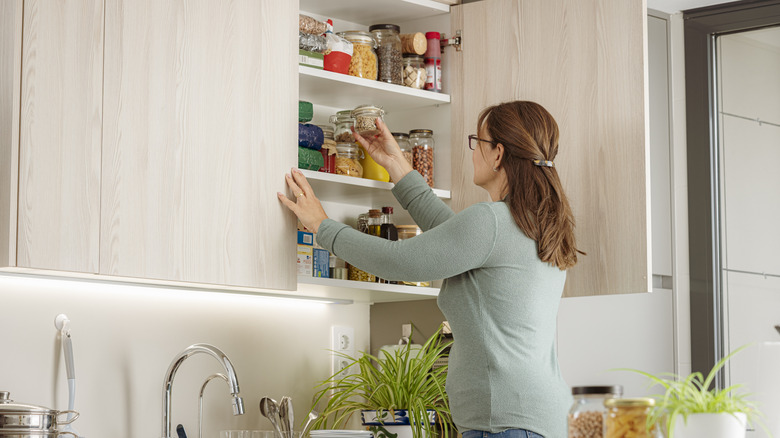The Step You Must Never Skip Before Opening Canned Food
Don't let the naysayers fool you, canned food is a great alternative to buying fresh items. Along with the convenience and longevity it affords, canned food is also good for you. For example, there's a nutritional advantage to buying canned tomatoes over fresh ones thanks to the increase in lycopene. However, to ensure that you reap the many nutritional benefits without putting yourself at risk of foodborne illness, you must clean the tops of canned goods before opening them.
The reason for this extra cleaning step is pretty straightforward. There's no telling where a canned item may have been before it ends up in your kitchen. And it's possible that a can has been exposed to all manner of germs, as well as dirt, dust, and grime, as it makes its way from the manufacturing plant. Without cleaning, there's no way to prevent these substances from getting inside the can when you open it. Undertaking a simple cleaning step helps eliminate germs and ensures that your meal will be as healthy as it is delicious.
Always use best practices when cleaning canned goods
Cleaning cans before opening them isn't necessarily difficult but using the right techniques can help you avoid food poisoning more effectively. Start by dribbling a small amount of dish soap onto the top of the can. Next, take a sponge or brush and clean the top of the can for at least 20 seconds to ensure germs are sufficiently eliminated from the surface. After cleaning, rinse the can thoroughly to get rid of any soap residue.
It's also helpful to know the differences between cleaning and sanitizing or disinfecting. Cleaning entails using soap to remove germs, as well as dirt and debris. Sanitizing involves using bleach or similar products to reduce the number of germs on an object, such as a can of food. As for disinfecting, this process entails using a disinfectant to kill germs (as opposed to removing or reducing them). In most cases, cleaning canned items with soap should suffice.
The condition of the can is another crucial factor
Cleaning canned goods to remove germs won't be of much assistance if the contents of the can are already compromised. Accordingly, you must be able to identify a damaged can when cleaning to avoid the potentially harmful contents inside. Bulging cans can signal the presence of bacteria, as can a badly dented can (meaning a dent that is roughly the depth of a finger). Badly rusted cans should also be thrown away, particularly if you find rust inside.
Similarly, you should avoid eating canned food that has been frozen. While canned goods must be stored in a cool, dry area of the home, the freezer is not a suitable place. That's because the contents of the can are likely to swell when frozen, which can cause defects on the can itself if the pressure is too great. With proper cleaning and storage, you can rest assured that the canned food you're about to eat is nutritious and wholesome.


